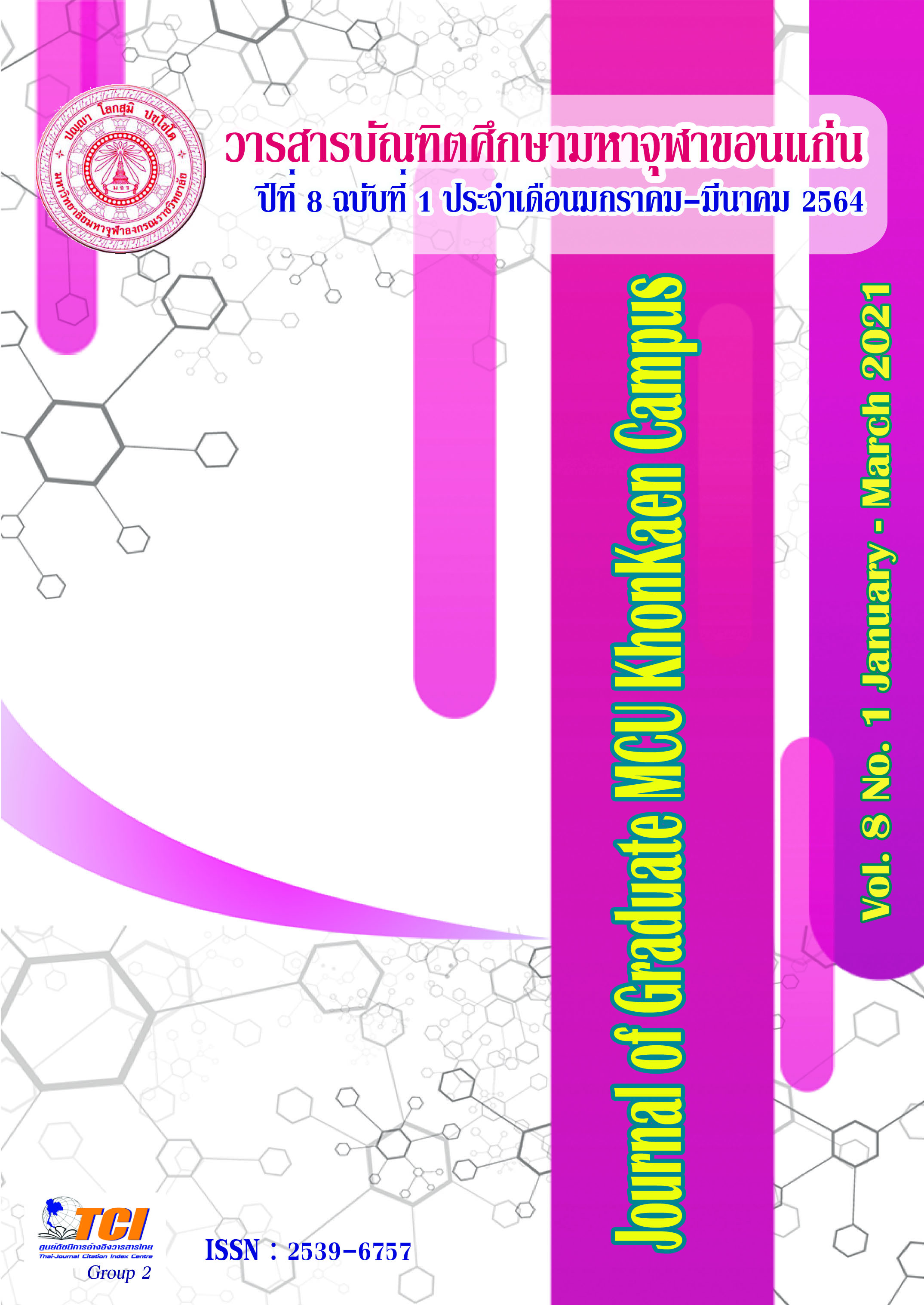SPIRIT (VIÑÑÃNA) IN BUDDHIST PHILOSOPHY
Main Article Content
Abstract
The Spirit in Buddhist philosophy does not the spirit that rises after death, but it means the spirit that exists in the person who is alive and can sense the emotions. That is, the spirit of emotional awareness which are senses and 6 pairs of emotions: the spirit of the eye is seeing, the spirit of the ear is hearing, the spirit of the nose is smelling, the spirit of the tongue is tasting, the spirit of the body is touching and the spirit of the mind is knowing or know the matters in one’s mind. These spirits are the spirits which rely on each other to be able to recognize the emotions.
Article Details
References
มหาจุฬาลงกรณราชวิทยาลัย. (2539). พระไตรปิฎกภาษาไทย ฉบับมหาจุฬาลงกรณราชวิทยาลัย.
กรุงเทพมหานคร: โรงพิมพ์มหาจุฬาลงกรณราชวิทยาลัย.
ราชบัณฑิตยสถาน. (2546). พจนานุกรม ฉบับราชบัณฑิตสถาน พ.ศ.2542. กรุงเทพมหานคร:
บริษัทนานมีบุ๊คพับลิเคชั่นส์.
พุทธทาส อินฺทปญฺโญ. (2533). ธรรมโฆษณ์อรรถานุกรม. กรุงเทพมหานคร: หจก.ภาพพิมพ์.
พระราชวรมุนี (ประยุทธ์ ปยุตฺโต). (2528). พจนานุกรมพุทธศาสตร์ ฉบับประมวลธรรม. กรุงเทพมหานคร
: มหาจุฬาลงกรณราชวิทยาลัย.
______. (2529). พุทธธรรม. กรุงเทพมหานคร: มหาจุฬาลงกรณราชวิทยาลัย.
พระพรหมคุณาภรณ์ (ป.อ. ปยุตฺโต). (2559).พจนานุกรมพุทธศาสน์ ฉบับประมวลศัพท์. (พิมพ์ครั้งที่ 28).
กรุงเทพมหานคร: สำนักพิมพ์ผลิธัมม์.
พระมหาประวัติ คงฺคปญฺโญ. (2519). ตายแล้ววิญญาณไปไหน. กรุงเทพมหานคร: ธรรมบรรณาคาร.
พระมหาสมปอง มุทิโต. (2542). คัมภีร์อภิธานวรรณนา. กรุงเทพมหานคร: โรงพิมพ์ธรรมสภา.
พร รัตนสุวรรณ. (2528). วิญญาณคืออะไร 2. กรุงเทพมหานคร: โรงพิมพ์วิญญาณ.

